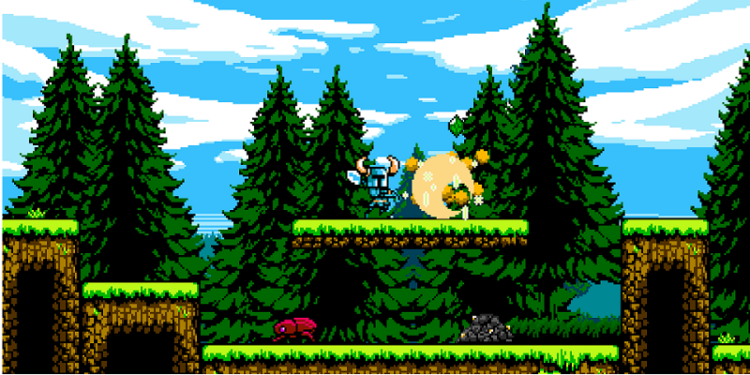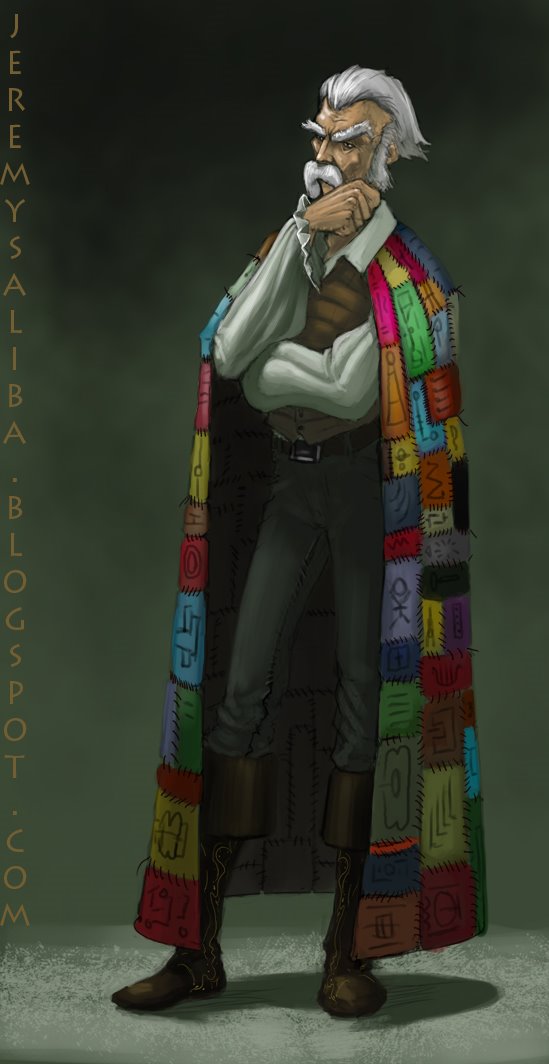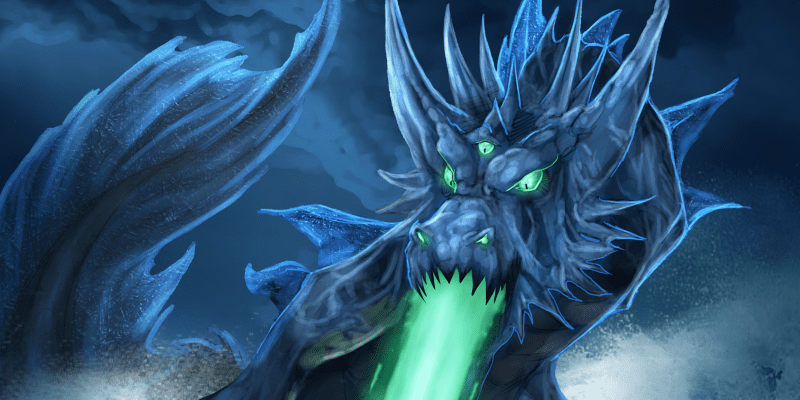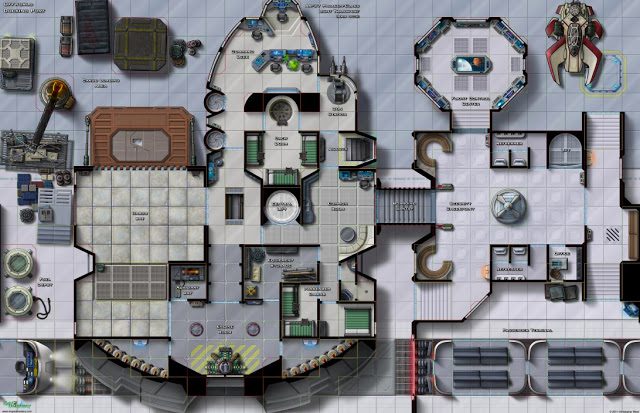Using Tokens in Your Game, Part 2

What do the Shovel Knight’s magical shovel1, “Scrooge McDuck’s” lucky dime2, Thom Merlin’s colorful cape3, the barbarian’s totem, and your lucky “get laid” underwear all have in common? They’re symbols of a characters personality, tokens of who they are, what they stand for, and deeply identified with them. In all of these cases, you never see the character without their token. Given that many characters in your games may have the same set of lock-picks, instrument, or bedroll why not take these items to give the characters backstory, examining the types of tokens that might exist, how to activate them, and their various powers, as well as plots that might involve them?
Last time we talked about types of tokens and activating them. This time around we’ll talk about token powers, how to activate tokens, and token plots.
Token Powers
 A token’s power should in some way be related to what it is, how it’s portrayed, and the symbology behind it. For instance a person’s whose token is a pair of dice might be able to roll them daily. Should the PC come across a particularly dangerous area filled with traps, they may be able to navigate them without problems or help them disable them.
A token’s power should in some way be related to what it is, how it’s portrayed, and the symbology behind it. For instance a person’s whose token is a pair of dice might be able to roll them daily. Should the PC come across a particularly dangerous area filled with traps, they may be able to navigate them without problems or help them disable them.
Another way this might be used is that the token is able to give an un-typed bonus to a roll related to what the token is (various game systems), an advantage to the character/ disadvantage for an enemy (5e/ D&D Next) to an enemy, give the character an aspect (FATE).
D20 Token Powers
- Allow the character(s) to bypass a danger by temporarily or permanently disabling it
- Allow the character to ignore damage from one source or for a set period of time
- In games where there are “saves,” give a bonus to passing one.
- Allow the character to have a form of movement they normally don’t have – for instance flight or tunneling.
- In battle, give a bonus to a roll to hit or damage
- In battle, give the ability to damage an otherwise invulnerable foe
- Give a bonus to some specific skill or set of related skills to escape an otherwise impossible situation
- Give a temporary health boost to a character/ allow for an unconscious character to perform one last heroic act
- Give character one or more enhanced senses. These senses don’t necessarily have to align with the normal ideas of sight, sound, smell, touch, and taste, but can be less defined such as a sense of luck.
- Cure character of adverse conditions permanently or temporarily
- Give the character a clue what to do next when they’re stuck
- Give the character a temporary or permanent new ability/ change them somehow
- Give the character X number of more actions for one turn
- Give the characters hope (in some games this is would be called a “morale bonus”)
- Allow a character/ group of characters to do some task faster, more efficiently, or in a more coordinated manner
- Move the character(s) to somewhere safe
- Give the character the exact tool needed in this situation
- Summon aid to the character’s side
- Give the enemy a temporary or permanent disadvantage
- Temporarily (or permanently) disable an enemy’s advantage, power, skill, or ability or give the enemy a disadvantage.
This list is meant to be seen as a starting point, not as a comprehensive list of everything that tokens can do. As you’re considering how to incorporate tokens into your game, keep in mind that a token doesn’t necessarily need to do the same thing every single time it’s activated. What it does could be affected by a variety of factors including:
- What is needed – sometimes only being able to damage the enemy may be needed.
- How badly its powers are needed – sometimes the characters might be tempted to call on its powers when it’s really not needed. In the manga and anime of Akame Ga Kill, one of the characters was named “Mine” who had an Imperial Arms named Pumpkin, which is a gun that increases its power in relation to how much of a “pinch” the user is in.
- How long since it was used last: even if it’s truly needed, but was just called upon five minutes ago, it might not be up to full power. Conversely, if it’s ancient, it may take a few uses to get to “full charge,” as it grows more powerful with each use.
- Does it work based on some sort of cycle? For instance, the cycles of the moon or day/ night, or perhaps even seasonal (spring, summer, fall, winter).
- Who is there – the absence (or addition) or a character can change how it functions.
How Do Token Work?
 Token are (for lack of a better word) literary devices that work despite the fact of any other circumstances. Their powers are neither magical nor supernatural, therefore should not be subject to enemy powers or abilities that restrict such things.
Token are (for lack of a better word) literary devices that work despite the fact of any other circumstances. Their powers are neither magical nor supernatural, therefore should not be subject to enemy powers or abilities that restrict such things.
Tokens could be something that evolves over time, due to use, or need. In the Akame Ga Kill anime and manga, the Imperial Arms Incursio is made from the hide of a “danger beast” and evolves as the user gets stronger, and with need.
Furthermore, just because a token user calls on it, doesn’t necessarily mean that its power will be available. Maybe this particular token was a “one shot” deal and goes dead afterwards. Maybe, as stated above, its use could be based on a cycle, but the cycle isn’t immediately apparent to the user. Maybe there needs to be a certain situation for it to activate.
Token Plots
Because of the fact that tokens are things that show up just in time to save the day, it’s difficult to create plots surrounding them, but here are a few to start with.
D12 Token Plots
- Missing Heirloom: Something of the PCs or NPCs is stolen and meaningful to them. It’s up to the PCs to get it back. Once they do, the item shows its worth as a token.
- Long Lost Token: a token was hidden somewhere and the players uncover it, along with a long-lost mystery to a clue to one of the character’s past. But the problem is that once discovered, other forces are at work to prevent the mystery from seeing the light of day. Can the PCs solve the mystery before it’s too late?
There’s an episode of “Touched by an Angel in which a character’s about to commit suicide due to being destitute whose life, ironically enough, gets saved by the angel of death. The episode recap can be found here. - Accidental Token Creation: one of the characters makes what she thinks is a standard object of X type, but doesn’t realize the powers that she accidentally imbued into it. (If you want to see how this works, look at the creation of Wildcard in “Tales of the Questor” web comic)
- Accidental Discovery Token: One of the characters stumbles upon an object, substance, medicine, etc. and don’t realize the importance of it and thus forgets about it. When they least expect it, it activates giving the character just what is needed.
- Dangerous token: Some item could have been locked away eons ago because it was dangerous – either it sapped the life of the person wielding it or those around him, couldn’t be effectively controlled, or because everyone wanted it, wars were fought over it. In any case, it has resurfaced, and it’s up to the PCs to discover what it is and how it is used before it’s too late.
- Dangerous token II: The PCs are entrusted with a dangerous token to figure out how to dispose of it properly. The problem is that everyone wants to get their hands on it before it can be destroyed. This is more or less the plot in Tolkien’s “Lord of the Rings” trilogy.
- Dying Wish: one of the characters inherits something from a relative or friend who passed away, and it’s the person’s dying wish that the PC take this item and go on a quest that they themselves could not complete. Unfortunately for them, doing so also endangers their lives.
- Token of Wealth: A wealthy person has hired the PCs to transport their token of wealth to a safe area. Unfortunately, there are others that wish to have the token for themselves. (Think Scrooge McDuck’s “lucky dime”)
- Token of Power: a character inherits a ring or necklace that gives them amazing powers. Unfortunately donning it sucks them into a world of intrigue they didn’t know existed. (Read “Hero by Night” and “Mindmistress” web comic, and Green Lantern comics for potential complications)
- Swapped Token: An innocuous object has accidentally been replaced with a token. The people who swapped it don’t realize it at first, and the party who now has it figured out what it is and how it can be useful to them. The party that had it before will stop at nothing to get it back… including destroying the world.
- Enemy token: The PCs have taken a token from one of their enemies who needs it to complete the spell that they’re working on. Can they make a clean get away with it?
- Damaged Token: one of the PC’s tokens have been damaged after its last use. They know that they’re going to need to use its powers again, which means that they’re going to have to seek out an expert to fix it for them. What will they do if every expert they approach to fix it either dies or refuses to help them out?
Final Thoughts
Tokens are an interesting way of adding depth to your campaign as each has an individual story to tell, unique powers, abilities, and forms that can help characters out of sticky, difficult and/ or problematic situations.
If handled deftly, an entire campaign could be built around them, particularly if the game’s mythology says that the methods of making them have been lost to the annuls of time. Maybe there are a set number of them in the world and it’s up to the PCs to collect them and turn them over to someone for a higher purpose or to be locked away, lest they cause problems to the population at large.
Yet when adding Tokens to your game, care needs to be taken when deciding what power(s) they will have. For even a one shot application can have far-reaching consequences in the game.
As always when reading my articles, feel free to like, comment, and reshare them.
Notes
- Shovel Knight Video Game
- Disney’s Duck Tales Cartoon
- Robert Jordan “The Wheel of Time”



